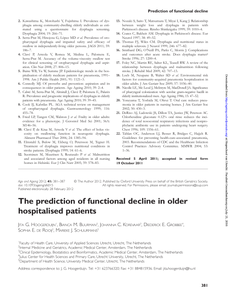The promotor was Prof. Erik Jan Hultink and copromotors Dr Ellis van den Hende en Dr R. van der Lugt. The title of this dissertation is Armchair travelling the innovation journey. ‘Armchair travelling’ is an expression for travelling to another place, in the comfort of one’s own place. ‘The innovation journey’ is the metaphor Van de Ven and colleagues (1999) have used for travelling the uncharted river of innovation, the highly unpredictable and uncontrollable process of innovation. This research study began with a brief remark from an innovation project leader who sighed after a long and rough journey: ‘had I known this ahead of time…’. From wondering ‘what could he have known ahead of time?’ the immediate question arose: how do such innovation journeys develop? How do other innovation project leaders lead the innovation journey? And could I find examples of studies about these experiences from an innovation project leader’s perspective that could have helped the sighing innovation project leader to have known at least some of the challenges ahead of time? This dissertation is the result of that quest, as we do know relatively little how this process of the innovation project leader unfolds over time. The aim of this study is to increase our understanding of how innovation project leaders lead their innovation journeys over time, and to capture those experiences that could be a source for others to learn from and to be better prepared. This research project takes a process approach. Such an approach is different from a variance study. Process thinking takes into account how and why things – people, organizations, strategies, environments – change, act and evolve over time, expressed by Andrew Pettigrew (1992, p.10) as catching “reality in flight”.
MULTIFILE

Several western governments have implemented environmental policies which increase the cost of air travel. Such policies aim to reduce the impact of air travel on climate change, but at the same time they restrict tourists in their travels. This study examines the extent to which the average tourist's happiness is affected by 'involuntary green travel', defined as reduced CO 2 emission travel imposed by government regulations. This issue was addressed in a study among 588 Dutch citizens who completed a self-report questionnaire containing questions about their happiness. The strongest determinant of tourists' happiness is freedom in choosing a destination. Any policy measure that interferes with tourists' freedom in destination choice will negatively affect tourists' happiness. Six percent of their happiness is at stake and potentially 17% of all holiday trips are affected. The number of tourists involved is possibly much smaller. The best options for governments are to impose taxes on long-haul destinations, which affect only a small share of all tourists, and air routes which can also be travelled by a variety of alternative modes of transport and thus less limiting to destination choice within this market segment.
DOCUMENT
Thirty to sixty per cent of older patients experience functional decline after hospitalisation, associated with an increase in dependence, readmission, nursing home placement and mortality. First step in prevention is the identification of patients at risk. The objective of this study is to develop and validate a prediction model to assess the risk of functional decline in older hospitalised patients.
DOCUMENT

Usually the whole is the sum of its parts (added linearly): someone is happy and travelling, so happy travelling. Someone walks across a motionless and stable bridge and thus moves forward. But when hundreds of people walk together, the bridge may start to wobble quite suddenly. Both systems - the pedestrian and the bridge - are coupled into one new pattern, in which the whole is more than the sum of its parts. Such discontinuous shifts can be observed everywhere: in horses, the shift from walk to trot to canter (3 patterns); from ice to water to steam. Psychological measures - IQ, emotional stability, planning skills are marginal at best. It is argued that our behaviour is often determined by such dynamic systems.
MULTIFILE

Most FLP research focuses on intrafamily communication (1FLP) and how this is impacted by larger contexts. But what happens when different multilingual families interact intensively on a daily basis? This article analyses language use during a holiday in India in and between four deaf-hearing befriended families, and how this evolved over the twelve days of the trip (4FLP). Three of the four families are our (the authors’) own. The family members originate from the UK, Belgium, Denmark and India. All families use more than one language at home (at least one sign language and one spoken language), and all family members are fluent signers. We ask: how does intrafamilial FLP (1FLP) at home inform interfamilial FLP (xFLP) on holiday? And how does interfamilial contact on holiday inform intrafamilial FLP during that same holiday? The data discussed in the article is organised along different multilingual practices, some of them general to multilingual interactions and others specific to multilingual signers: language mixing, switching and learning, language brokering, speaking and signspeaking. The findings reveal rich complexities of interfamilial language practices which inform thinking on FLP and multilingualism.
LINK
DOCUMENT

Digital techniques have enabled us to enjoy music, literature and communication to an unlimited extent. Images, music and other files can even bridge the largest distances on Earth in just a few milliseconds via the World Wild Web (and satellites). Digital connection would be less demanding for the planet and therefore more sustainable than travelling. But is that also true? Unfortunately, the opposite is true. "We 're putting out the fire with gasoline"!
MULTIFILE

DOCUMENT

DOCUMENT

DOCUMENT